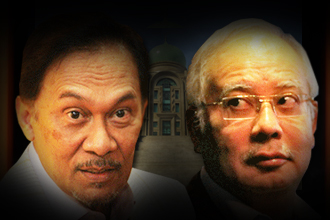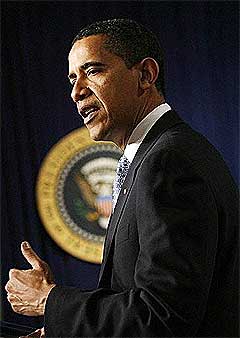Although the 13th general election is imminent, Prime Minister Najib Abdul Razak still appears reluctant to engage in a public debate with Opposition Leader Anwar Ibrahim.
 There is undoubtedly a need for this debate, focusing specifically on Malaysia's economic and social policies.
There is undoubtedly a need for this debate, focusing specifically on Malaysia's economic and social policies.
The global financial crisis in 2008 drew attention to the urgent obligation of the Malaysian government to carefully review neoliberalism, the dominant model of development that had been actively implemented since the early 1980s by then Prime Minister Dr Mahathir Mohamad.
Mahathir had been deeply enamoured with the core tenets of neoliberalism that had been actively advocated by Margaret Thatcher and Ronald Reagan from the late 1970s.
These conservative leaders would come to obtain huge support worldwide for their argument for less government intervention in the economy and for their zealous endorsement of the private sector as the primary engine of growth, including through active de-regulation and privatisation.
The global crisis discredited neoliberalism when the social inequities it had wrought, particularly the growing divide between the rich and poor, was so devastatingly exposed. Neoliberalism's precipitous fall from grace was most conspicuous when the governments in the US and Britain had to support massive bailouts of powerful huge financial institutions to stymie the collapse of these economies.
When reluctantly endorsing this bailout, Nancy Pelosi, the US House of Representatives leader, stressed greater regulation given the problems of a market left to its own devices.
 President Barrack Obama, but only in his second inaugural presidential address, would overtly acknowledge the need for greater government intervention in the economy, covertly dismissing neoliberal ideas that had long been propagated by every one of his predecessors since Reagan.
President Barrack Obama, but only in his second inaugural presidential address, would overtly acknowledge the need for greater government intervention in the economy, covertly dismissing neoliberal ideas that had long been propagated by every one of his predecessors since Reagan.
In Malaysia, as solutions were sought to deal with the serious post-crisis recession, one would have presumed that the government would have been wary of neoliberal ideas. And, at the onset of the recession at 2009, Malaysians were heartened to hear that in the pipeline was a ‘New Economic Model', an ‘Economic Transformation Plan', a ‘GovernmentTransformation Plan' and, later, a (much required new) ‘Education Blueprint'.
What is clear, however, is that the policy recommendations introduced by Najib in response to the crisis did little to provide an alternative to the neoliberal strategies introduced by Mahathir. In fact, Najib's recommendations appear to vindicate Mahathir.
There is little political will, not even a brave attempt, to advocate a genuinely different development model that will address the serious inequities and structural problems that exist in Malaysia.
Go to KiniBiz for more .

